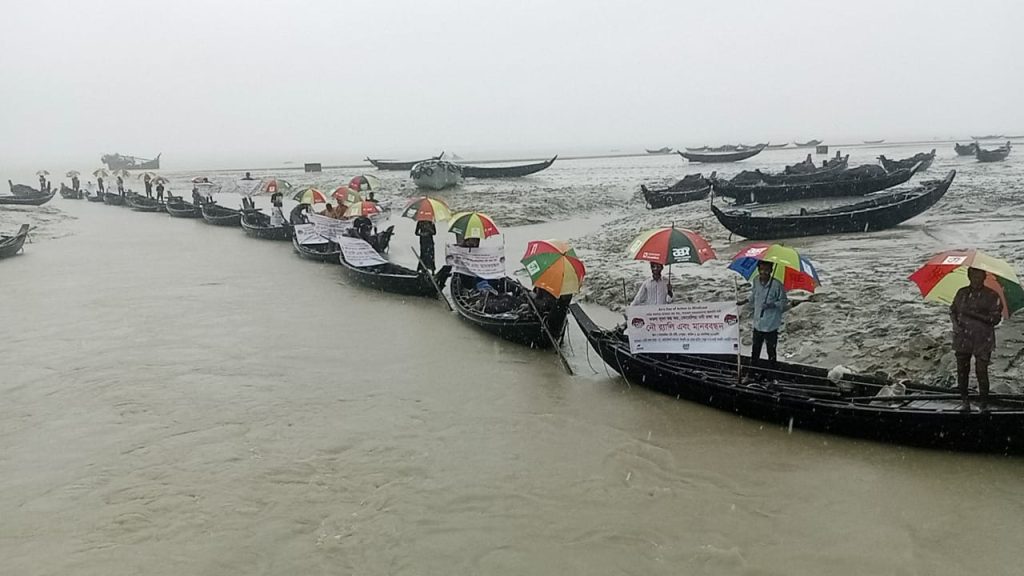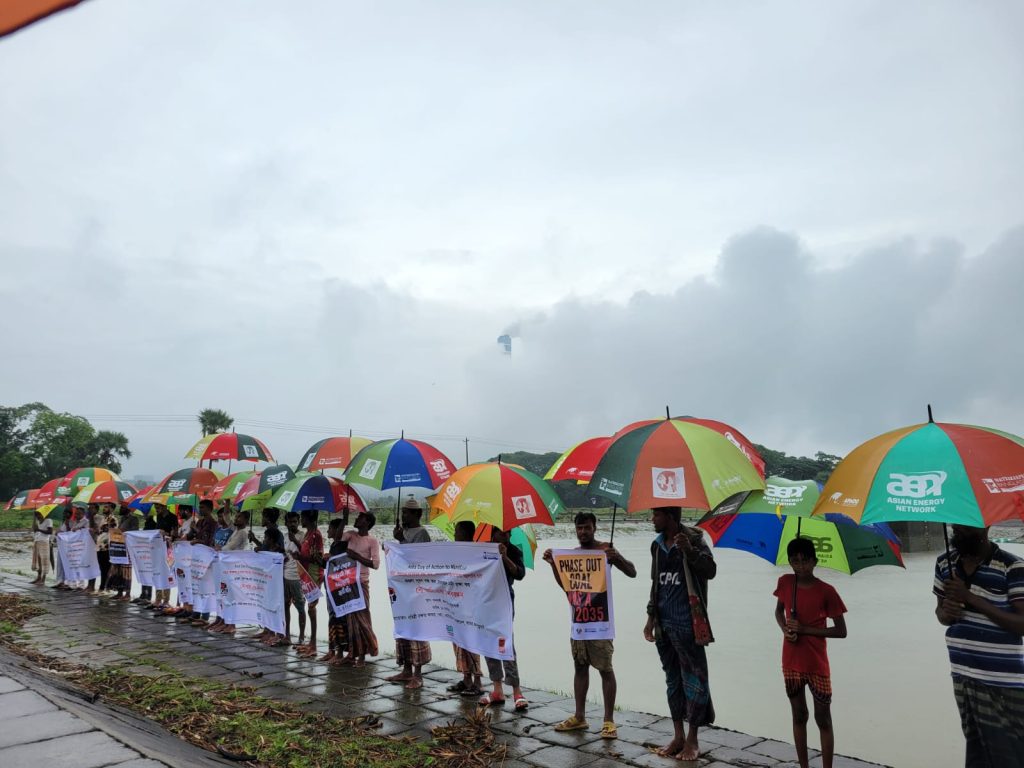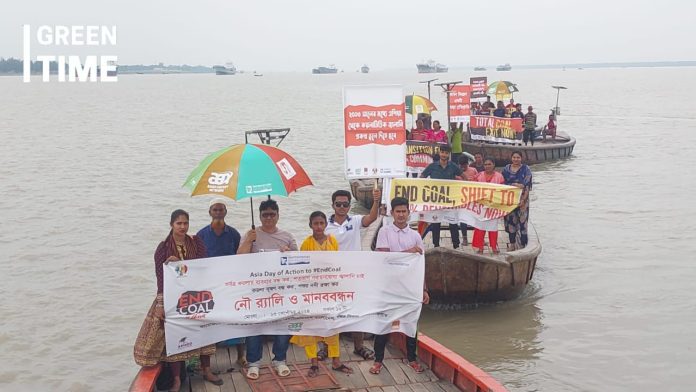As part of the “Asia Day of Action to End Coal,” protest programs took place on September 13, 2024, across Bangladesh, in unison with nine other countries, calling for the immediate halt of coal-based power projects, the protection of rivers from coal pollution, and a full transition to 100 percent renewable energy. The demonstrations included boat rallies on the Kohelia, Payra, Pasur, and Rabanabad rivers, as well as human chains in front of coal power plants, including Matarbari Coal Power Project, Barisal Power Plant in Taltali, Rampal Coal Power Plant in Mongla, and Patuakhali Coal Power Project.
This Asia-wide event was jointly organized by the Asian People’s Movement on Debt and Development (APMDD), the Asia Energy Network (AEN), and the Global Fight to End Fossil Fuels. In Bangladesh, the programs were coordinated by Dhoritri Rokkhay Amra (DHORA) and Waterkeepers Bangladesh, along with local organizations and concerned villagers, aiming to protect the country’s natural resources. Key local organizing groups included Amra Kalaparabasi, Sunderban Rokhhay Amra, Pasur River Waterkeeper, Save Nature Save Life, Coastal Free Rover Scouts, Kohelia Fishermen’s Association, Maheshkhali Coastal Fishermen’s Association, and Payra River Hilsa Conservation Committee. Despite stormy weather and heavy rain caused by low pressure, hundreds of affected residents actively participated in the protests.
Lidy Nacpil, Coordinator of APMDD, remarked, We are alarmed that new coal is on the rise and that retirement of existing plans is happening too slowly. We call on governments and corporations to immediately stop the expansion of new coal and to rapidly phase out existing coal in Asia. Coal-fired power plants have devastated the climate, poisoned the land, water and air in our communities, and worsened inequalities in the Global South.

Sharif Jamil, Member Secretary of DHORA and Coordinator of the Waterkeepers Bangladesh, stated that coal-based power projects are threatening both the environment and livelihoods in Bangladesh. He warned that coal pollution in the densely populated, river-formed alluvial plains of Bangladesh would have severe impacts on agriculture and public health. Sharif Jamil acknowledged the interim government’s efforts to address environmental issues and called on them to adopt a ‘No Coal Policy’ to put an end to the use of dirty coal.
Participants from the areas surrounding the four coastal “power hubs” raised their voices in these protest programs. Local speakers noted that coal projects have drastically reduced fish stocks, causing significant losses for fishermen. They further emphasized that coal plants are intensifying river pollution, destroying biodiversity, and threatening aquatic life.

Additionally, the speakers highlighted the deterioration of river water quality, leading to a rise in health issues among local communities. The coal projects have left many struggling, and during the event, a plume of smoke from the Patuakhali Power Plant sparked further concern and fear among the public.
Protesters carried colorful banners, placards, and festoons bearing slogans, demanding the immediate shutdown of all coal-based power plants in Bangladesh.
Contact:
Mamun Kabir
Manager, Communications and Advocacy
Waterkeepers Bangladesh
Phone: 01601-652057

